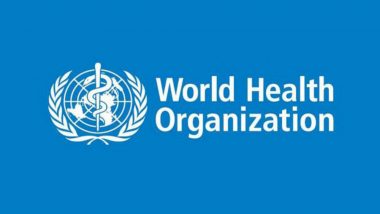Geneva, August 2: The World Health Organization has said it is closely monitoring the new coronavirus variant named Mu, adding that the 'variant of concern' has shown signs of possible resistance to vaccines.
In its weekly epidemiological update, published on Tuesday, the WHO warned the variant was becoming increasingly prevalent in Colombia and Ecuador.
Mu was first identified in Colombia in January 2021, and since then, there have been "sporadic reports" of cases and outbreaks in South America and Europe, the WHO said. Health Ministry Says ‘No Cases of New COVID-19 Variant C.1.2 Detected in India’.
While the global prevalence of Mu among sequenced COVID-19 cases is below 0.1 per cent, its prevalence has "consistently increased" in Colombia and Ecuador, where it is now responsible for around 39 per cent and 13 per cent of infections, respectively.
Also Read | Nigeria: Gunmen Kidnap 73 Students in Zamfara.
Reports on the variant's prevalence should be "interpreted with due consideration" given the low sequencing capacity of most countries, the agency said.
Mu is the fifth variant of interest to be monitored by the WHO since March.
It has a number of mutations that suggest it could be more resistant to vaccines, the health agency warned, but stressed that further research would be needed to confirm this.
Preliminary data show reduced effectiveness of vaccines "similar to that seen for the Beta variant". The WHO said it would be monitoring "the epidemiology of the Mu variant in South America, particularly with the co-circulation of the Delta variant...for changes".
As of 29 August, over 4,500 sequences (3,794 B.1.621 sequences and 856 B.1.621.1 sequences), genome sequences, analysed samples of the virus taken from patients, have been designated as Mu in the past four weeks. The sequences are used to track how it moves through the population, on an open-source genome repository, known as GISAID.
Although this figure will be affected by both sequencing capacity, surveillance and the total number of cases in an area.
(The above story is verified and authored by ANI staff, ANI is South Asia's leading multimedia news agency with over 100 bureaus in India, South Asia and across the globe. ANI brings the latest news on Politics and Current Affairs in India & around the World, Sports, Health, Fitness, Entertainment, & News. The views appearing in the above post do not reflect the opinions of LatestLY)













 Quickly
Quickly


